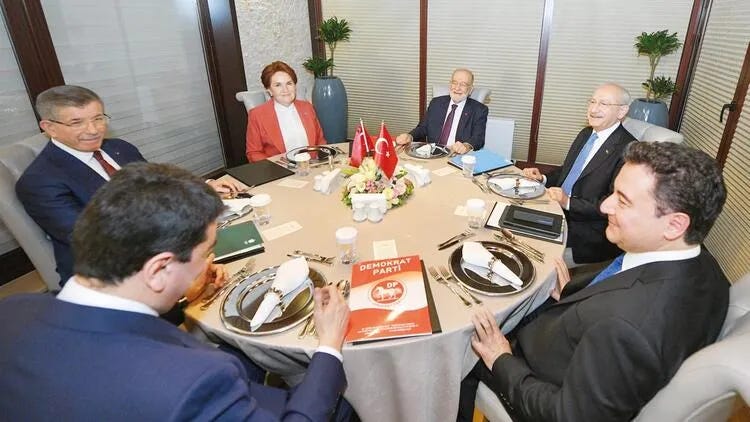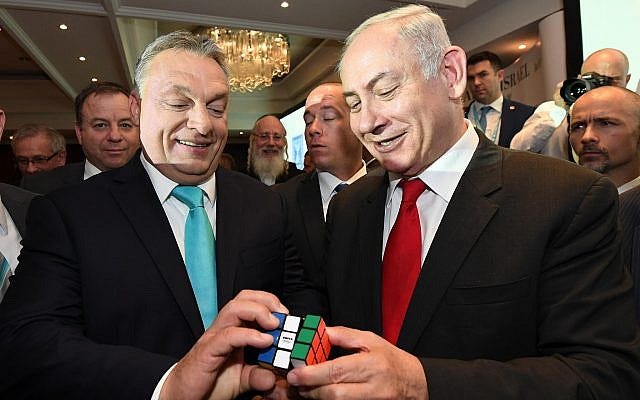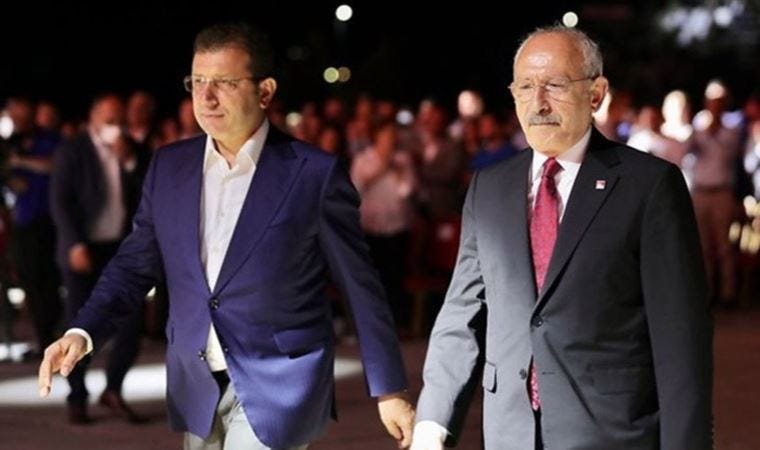Turkey elections #1 : Lessons from Hungary and Israel
If it is not the economy or democracy... then what the heck?!
I am afraid there will be more of these letters in the run-up to Turkey’s elections. As many in Turkey believe, and rightly so, that the upcoming elections in Turkey scheduled for June 2023 – but possibly in May 2023 – will be a make-or-break moment.
Hungary, Israel, and Turkey each have distinct features, different settings, and electoral laws. However, I believe these two cases bear important lessons not only for Turkey but for many countries that are either electoral autocracies or are in the midst of existential electoral politics. I will not go into detail about how these three countries and their electoral systems differ. I believe it is conspicuous enough. What I’d like to do is examine the parallels and draw lessons.
Benjamin Netanyahu, by coming out victorious from the November 2022 elections became the longest-serving prime minister of Israel. The same is true for Viktor Orban of Hungary following his triumph in the April 2022 elections. With two decades of incumbency, Tayyip Erdogan is already Turkey’s longest-serving prime minister/president.
Prior to the Israeli and Hungarian elections, the votes appeared close, but many expected Orban and Netanyahu to lose. Change was not only possible but probable. Nonetheless, the outcome was baffling. The polls, again, proved to be irrelevant. They’ve done it yet again! What the heck? Turkey is currently at a crossroads where change is probable. Is it?
The Protector?!
Despite an ongoing corruption trial in which he accepted gifts from businessmen and dispensed favours in exchange for positive media coverage, Netanyahu made a ‘dramatic comeback [that] sealed the belief among his supporters that "King Bibi" is politically invincible.’ One reason is that he has portrayed himself as ‘protecting Israel from the hostile forces in the Middle East.’
Orban, similarly, positioned himself as the protector of Hungarians from an enemy. The list of enemies consists of various institutions and vague concepts: Immigrants, the EU, George Soros, Western liberals, the US, the IMF, and the LGBTQ community. He also ‘won the clash of narratives over the war in Ukraine by portraying himself as the guarantor of peace and security, while accusing his challenger, Peter Marki-Zay, and the united opposition of potentially bringing Hungary into war.’
TURKEY: Erdogan, as a follower of the illiberal populist playbook, has been constructing a narrative in which there are many enemies, and he is the protector. In his case, the adversaries include the Israeli lobby, the interest lobby, Greece, the BBC, the New York Times, the Economist, the Kurdish movement and its armed wing the PKK – as well as its offshoots in Syria PYD/YPG, the FETÖ (once his ally Fethullah Gülen’s movement, now officially considered as a terrorist organisation due its masterminding the coup attempt of 15 July 2016), and of course George Soros.
Not free, not fair
By 2022, nearly all media outlets were routinely repeating Orban’s campaign slogans in Hungary. The opposition struggled to get its message across through few online news sites. The opposition’s leader, Péter Márki-Zay, had only five minutes to present his program on public television. to present his program—on a Wednesday morning. Orban’s party ‘broadcast a loud and clear message that drowned out the opposition’s fuzzy and muted one. And yet, during most of the campaign, the united opposition matched Fidesz’s popularity, albeit with polls registering a large “undecided” vote.’1 That is frightening.
TURKEY: As in the case of Orban, the airtime dedicated to opposition parties on the official broadcaster TRT is a fraction of the AKP. This has been the case since 2010.
All of the critical junctures in Turkey’s illiberal turn and AKP’s crackdown on media have impacted journalism and free speech. Let me paint you a quick picture: Beginning in 2008, Erdogan’s government seized mainstream media outlets and established his own pool of mouthpieces. The majority of newspapers and tv channels are now not only run by Erdogan sycophants but also funded by businessmen linked to him.
Press Freedom Index ranks Turkey in 154th place out of 180 countries. Slightly better than the failed state of Libya where, ironically, Turkey has dragged itself into yet another theatre that exacerbates the quagmire.
According to the Turkish Journalists' Union, 50 journalists are currently imprisoned on suspicion of terrorist activity. As you might expect, the terrorist label is useful to many authoritarian or competitive authoritarian regimes all around the world. In Turkey, the sheer act of journalism, seeking the truth has become grounds for being charged as a terrorist.
Twelve thousand journalists have been tried for reasons related to their published works since 2013. Only in 2019, the sentencing of prison years for 59 journalists amounted to 200 years. Since the beginning of 2022, 9 journalists have been physically assaulted because someone felt offended by their work.
Aside from physical assault and the threat of imprisonment, the apprehension of being laid off had become another measure of censorship. If a reporter's piece irritates a certain state official, the reporter in question will be fired within hours, not days. According to the Turkish Journalists Association, 30 percent of registered journalists are currently unemployed. Given the number of unregistered journalists out of work, we can assume that doubling the number will give us a more accurate picture.
Benefits from the incumbent
The Orban government spent money in advance of the April 2022 parliamentary elections: wage hikes in certain sectors, increase in minimum wage, ‘income-tax rebates for families, waiving income tax for workers under the age of 25, and certain home renovation grants. Hungary’s 2.5 million pensioners also receive considerable sums early 2022.’ The goal was to ‘dampen the feeling, at least until the elections, that the economy was in a dire situation, and by taking extraordinary economic measures, the Orban government managed to maintain its economic legitimacy in the run-up to the election.’
TURKEY: Same story. Erdoğan recently announced that ‘due to a global economic crisis’, his government will raise wages and pensions in line with inflation beginning in January 2023. The official inflation rate in Turkey is 85.51 percent. Shocking, no? Tell that to my friends and family in Istanbul.
Grumbling misfits who don’t like the boss?
In Hungary’s April 2022 election, almost every other party joined forces against Orban. However, as Ramsay argues, ‘politics isn’t an exercise in arithmetic. You can’t just add together votes in columns and ignore that each one is a person with a mind and thoughts who needs to be persuaded and enthused. Politics is about conflict, and argument and power. By stretching their alliance to the far-Right party Jobbik, and anointing Peter Marki-Záy, a conservative, as candidate for PM, the opposition muted itself. Out of mutual desperation to rid the country of its increasingly autocratic ruler, they seemingly forgot to stand for anything. The opposition needed to be an inspiring movement for a new generation of Hungarians, not a grumbling coalition of misfits who don’t like the boss.’2
A similar contention is made about the anti- Netanyahu alliance months before his triumph in the November 2022 election:
‘Their coalition is one of extremely unlikely allies. In many cases, they are united only by their disdain for Netanyahu. The group includes a nationalist party led by a Russian émigré; a hawkish new right-wing party; two decidedly left-wing parties, respectively headed by a woman and an openly gay man; and, for the first time ever in an Israeli coalition, an Arab party. To form what is known in Israel as the “change government” required a leap of faith on the part of all the party leaders.’3[2]
The coalition broke away before the election as well. The left-wing Meretz refused ‘run on a joint ticket with Labor, and the Arab party Balad. [Had they not] broken away from the Joint List party they ran with last time, then [the] election would have produced a 60-60 deadlock.’
TURKEY: Six parties allied against Erdogan’s AKP and nationalist MHP camp: the secular, centre-left CHP (Republican People’s Party), the centre-right İYİ Party, centre-right Democrat Party, the Islamist Saadet Party and two others that broke away from the AKP – the DEVA party led by former finance minister Ali Babacan and the Gelecek Party led by former foreign minister and PM Ahmet Davutoğlu. Yes, their common ground is their animus towards Erdogan, but they cannot be described solely as ‘grumbling misfits who don’t like the boss.’ Their vision of economic reparations is similar. They are all in agreement on on dismantling Erdogan’s hyper-presidential system, which was instituted following a referendum in 2011, and returning to a parliamentary system.
The main opposition party, the CHP, last week, announced its vision of economic and industrial development under the title ‘A Call for the Second Century’ – in 2023 modern Turkey will celebrate its 100th anniversary. Aside from a few mishaps such as including Jeremy Rifkin – an economist barely known in Turkey- to provide an overview of this vision in English, the overall outlook of the plan was common sensical. Most importantly, it was supported by the alliance’s other members. One risk of proceeding and announcing a vision while in an alliance is alienating the other parties. Despite rumours that each party is pursuing its own agenda and petty calculations, no major rift has emerged. Yet!
Kurds are the kingmaker, again!
The main criticism levelled at Turkey’s opposition alliance is that they yet to name a presidential candidate. Who will compete against Erdogan? Two likely candidates are the leader of CHP, Kemal Kılıçdaroğlu and CHP’s Istanbul mayor Ekrem İmamoğlu. Polls show a marginal difference between them, with İmamoğlu polling 1-3 percent higher than Kılıçdaroğlu. Many argue that İmamoğlu had once won against Erdogan – the mayoral elections in 2021 (although Erdogan was not himself the candidate) whereas Kılıçdaroğlu never did.
In my view, too much emphasis on which of the two should run leads to a critical point being overlooked. Yes, the candidate is significant in and of himself. Especially in a context where Erdogan has long presidentialized politics, it would be naïve to rely on institutional standing.
İmamoğlu is younger and a fighter. The Kurdish votes, however, are the missing link here. Kurdish electorate, as usual, will be the kingmaker. And for them, there isn’t much of a difference between İmamoğlu and Kılıçdaroğlu. What would be a colossal mistake for the opposition is to estrange the Kurdish electorate and assume that the dire financial situation would do their work for them. Economic voting literature contends that economic crises can result in government change. However, the situation is more complicated in autocracies:
‘By comparison with democracies, autocracies enjoy more leeway in their responses to such crises and economic downturns due to the ability to strengthen their clientelistic ties (Golosov 2016). If overall economic well-being decreases, the cost of additional votes also drops, which opens up opportunities for electoral clientelism and vote-buying. As voters’ vulnerability grows, it becomes easier to exercise control over their actions. An authoritarian context makes these citizens particularly vulnerable in cases of political non-compliance. The worse the economic conditions, the more support the incumbent receives (the “tragic brilliance” thesis) (Diaz-Cayeros, Magaloni, and Weingast 2003; Magaloni 2006).’4
If it is not the economy, stupid… Then, maybe... Erdogan would pay for his extreme repression of individual rights and liberties at the ballot box? Ominously, no. A recent study that explored voting behaviour after Erdogan pressured Turkey’s Supreme Electoral Council (YSK) to overturn the result of Istanbul mayoral election. In June 2019, a re-do of the election resulted in a second victory for İmamoğlu. However, the study contends, ‘even in such an extraordinary circumstance, voters rely on standard voting drivers like partisanship, rather than concern for the functioning of democracy itself,’5 and that anti-democratic behaviour is not always punished in competitive authoritarian regimes.
In the coming months, Erdoğan will do everything he can to divert attention away from the astronomical inflation rates. He will accomplish this by attempting to rally the nation around the flag which would include threatening Greece and waging periodic incursions into Syria against YPG/PYD. The latter option is likely to frustrate the Kurdish electorate even further. If the opposition alliance succumbs to Erdogan’s calculation which would result in a boycott of the election by Kurds, then who runs against Erdogan would have no bearing. Zero.
Kim Scheppele, “How Viktor Orbán Wins”. Journal of Democracy 33, no. 3 (July 2022): 45–61.
Adam Ramsay, ‘Fidesz won again because the opposition’s only policy was hating Orban’, Open Democracy, 04 April 2022.
Ruth Margalit, ‘The Defeat of Benjamin Netanyahu’, The New Yorker, 13 June 2021.
Elena Sirotkina and Margarita Zavadskaya, ‘When the party’s over: political blame attribution under an electoral authoritarian regime’, Post-Soviet Affairs, 36:1, 2020, 37-60.
Tijen Demirel-Pegg and Aaron Dusso, ‘Partisanship versus Democracy: Voting in Turkey’s Competitive Authoritarian Elections’, Political Studies Review, 20(4), 2022, 648–666.






